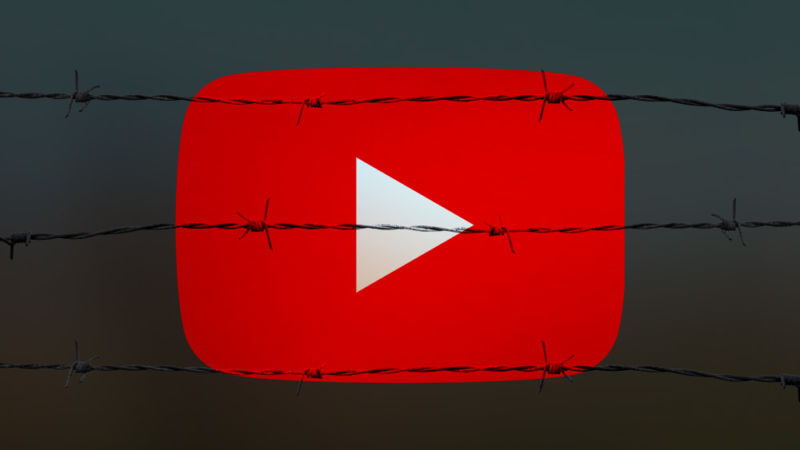
A popular tool used for archiving YouTube videos, YouTube-dl, is gone from GitHub after the Recording Industry Association of America filed a claim arguing that the code is inherently illegal under copyright law.
GitHub, which is owned by Microsoft, removed 18 projects on Friday that previously hosted versions of YouTube-dl, a Python library that allows for the downloading of YouTube video and audio files. Those repositories now display a message reading, "This repository is currently disabled due to a DMCA takedown notice. We have disabled public access to the repository."
Although the notice is framed as a DMCA issue, the takedown notice from the RIAA, dated Friday, does not make claim that YouTube-dl is an act of copyright infringement. Instead, it alleges that the code itself is a violation of a different section of Us copyright law (as well as German copyright law), because the "clear purpose of this source code is to... circumvent the technological protection measures used by authorized streaming services such as YouTube, and [to] reproduce and distribute music videos and sound recordings owned by our member companies without authorization for such use."
The RIAA notice specifically cites three examples provided in YouTube-dl documentation and source code that make reference to copyrighted music videos by Icona Pop, Justin Timberlake, and Taylor Swift—all of whom are represented by RIAA-member labels—to back up the claim.
The memory hole
The RIAA is not wrong that YouTube-dl exists as a technological workaround for streaming-only video, and it would be a lie to claim that nobody uses it for helping themselves less-than-lawfully to music tracks—people absolutely do. But YouTube-dl is not solely designed for that purpose, as the RIAA alleges. Activists, historians, and content creators widely use the tool for valid archival purposes as well.
Parker Higgins, with the Freedom of the Press Foundation, dug into the takedown claim in a twitter thread. YouTube-dl is "super popular among archivists and has incredibly broad fair-use applications," Higgins wrote. "The RIAA stance here is pretty aggressive and out there."
Higgins added, "The 'activity' that RIAA is claiming is unauthorized is hypothetical. And if a rightsholder were to authorize copying," such as by distributing their content under a creative commons license that allows it, "that copying would (obviously) be authorized."
The legal approach the RIAA took, however, does not necessarily have to demonstrate that YouTube-dl is an infringement instrument. Under the slice of copyright law known as Section 1201, creating any kind of end-run around "a technological measure that effectively controls access to a work," i.e., DRM, is itself unlawful. The Copyright Office does a review of section 1201 every three years to update the list of which kind of DRM circumvention is allowable or not.
The Electronic Frontier Foundation filed a lawsuit in 2016 arguing that section 1201 is unconstitutional; that case is still winding its way through the courts.
The EFF called the RIAA's notice a "disappointing and counterproductive move," a sentiment echoed by activists who work in the fields of civil rights, human rights, and hate speech.
"popular" - Google News
October 27, 2020 at 03:00AM
https://ift.tt/3osH9y7
GitHub boots popular YouTube download tool after RIAA claim - Ars Technica
"popular" - Google News
https://ift.tt/33ETcgo
Shoes Man Tutorial
Pos News Update
Meme Update
Korean Entertainment News
Japan News Update
Bagikan Berita Ini














0 Response to "GitHub boots popular YouTube download tool after RIAA claim - Ars Technica"
Posting Komentar